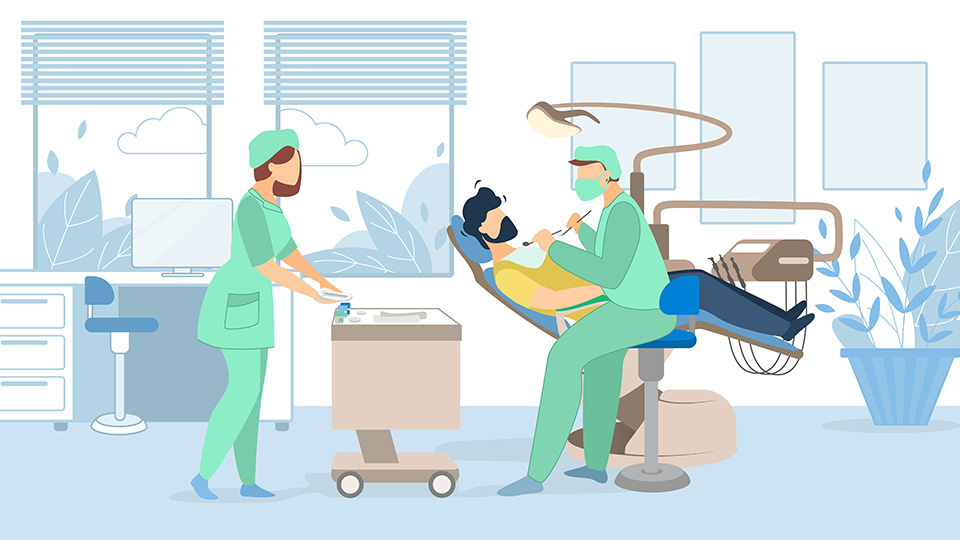
Dentists can make their practices more sustainable and improve their environmental footprint by recycling old dental amalgam, equipment and other waste.
Dental fillings and electronic waste (e-waste) hold small amounts of mercury and need to be recycled to prevent the mercury from contaminating and poisoning the environment.
The average dental surgery is estimated to generate half a kilogram of mercury waste every year, largely made up of used dental amalgam.
While paper, glass bottles and other materials can be recycled through your workplace recycling bin, any waste that contains mercury needs to be recycled through other channels.
Here are some recycling tips for the different types of mercury-containing waste commonly found in the dental industry:
Dental amalgam
There are many reasons to recycle dental amalgam, however the most important reason is that it prevents mercury from contaminating ecosystems.
Old dental fillings are often washed down the sink, where they can enter the sewer system and larger waterways and lead to serious environmental consequences.
You can easily recycle dental amalgam by equipping your dentist chairs with amalgam separators to trap fillings as they get washed down the sink.
Ecocycle then quickly swaps the separators once a year and processes the waste at their purpose-built facilities.
At Ecocycle’s fully EPA-licensed centres, the separators are cleaned so they can be used again and the mercury and other materials are recovered for reuse in new products.
Medical equipment
If your practice has old medical equipment like thermometers or sphygmomanometers hidden away in the back of an office cupboard, then it’s best to recycle them.
Traditional thermometers or sphygmomanometers contain relatively large amounts of mercury but are gradually being phased out by mercury-free digital devices.
Mercury-containing thermometers and sphygmomanometers can be safely disposed of through specialist recyclers like Ecocycle.
X-rays are mostly digital in Australia today, however there are still many old, silver-based X-rays and films hidden away in practices and other healthcare services.
While X-rays don’t have mercury, the recycling process recovers precious silver from old X-rays and treats the residual chemicals in line with Environment Protection Authority (EPA) requirements.
E-waste
All dental practices own at least some electronic devices these days, whether it’s computers, printers, televisions, laptops or mobile phones.
Electronic devices that have reached the end of their useful life should be recycled, however the different types of e-waste out there need to be recycled separately.
If you run a small business and only create a very small amount of e-waste, you may be able to drop it off at designated collection points found at RecyclingNearYou.com.
However, if you’re a large business or organisation with commercial-scale waste, then you should consider implementing a recycling program.
Recycling for dentists is easy
As the leading mercury recycler in Australia, Ecocycle recycles dental amalgam, medical equipment, e-waste and more.
With more than 20 years’ experience in collecting and recovering mercury from dental amalgam waste, Ecocycle can create a recycling program tailored to your business requirements.
If your dental practice needs a tailor-made recycling solution, then give us a call on 1300 32 62 92 or fill in the form below.
Source: REcycling - ecocycle.com.au


